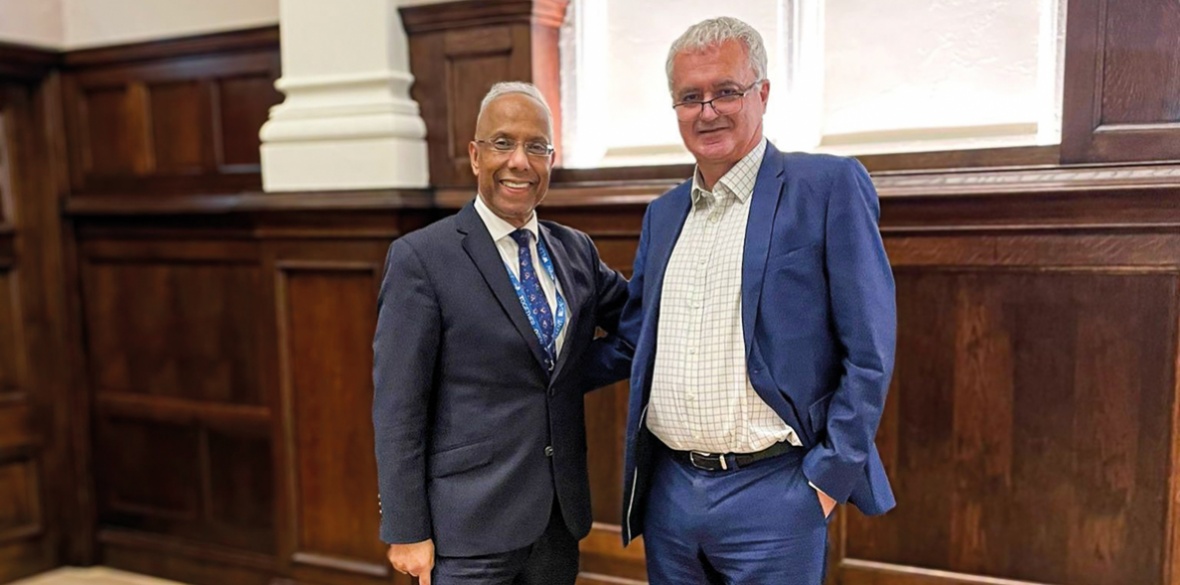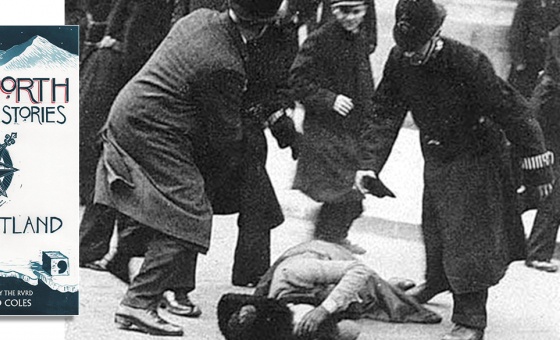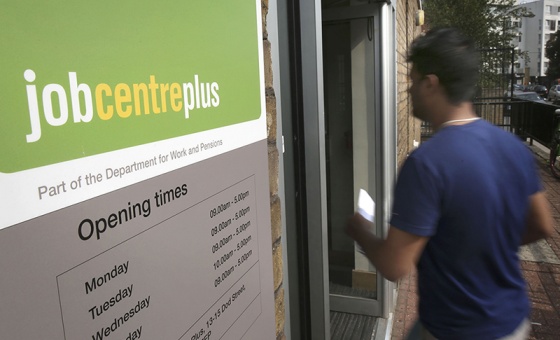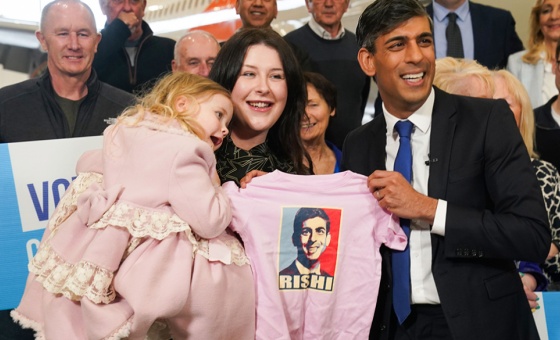This is the last article you can read this month
You can read more article this month
You can read more articles this month
Sorry your limit is up for this month
Reset on:
Please help support the Morning Star by subscribing here
EVERY single child in the London borough of Tower Hamlets gets free school meals until age 16, an achievement replicated exactly nowhere else in the country.
A lot of people conspired to try to stop that from happening. The Labour Party, sections of the media and an obscure individual called the Election Commissioner.
That all children in one of the country’s poorest neighbourhoods can be sure of a proper meal at school shows that the long struggle to overcome prejudice and state sanction by the borough’s Mayor Lutfur Rahman is more than just a personal vindication — it has paid dividends for his community too.
At a time when much of the left is struggling to find its feet as Labour moves ever-rightwards, there are lessons to be learned from Rahman’s victory and from his administration in what was once virtually a Labour fiefdom.
One lesson is perhaps an old and somewhat cliched one — what doesn’t kill you makes you stronger.
Certainly, enough work has been put into killing Rahman off politically. In brief — he rose to become Labour leader of Tower Hamlets council, the heart of London’s East End, in 2008.
In 2010 the borough voted to move to having an elected executive mayor, in common with many other authorities across the country. Rahman was selected by Labour members to be their candidate for the post.
It was not to be. Citing obscure allegations of “extremism,” Labour blocked his candidacy. Standing as an independent, the Bangladeshi-born Rahman was elected mayor anyway, aiming to pursue a radical agenda of house-building, free social care and paying the living wage.
He tried, largely fruitlessly, to entice politicians from other parties to work with him. But without their help, he did enough to secure re-election in 2014, with a higher vote.
This despite a long-running campaign in the press by Andrew Gilligan, once a journalist of a type, since an adviser to leading Tory politicians. The campaign had a distinct Islamophobic flavour in the views of many.
The local establishment did not take this lying down. A group of disgruntled failed local politicos complained that Rahman had bent the rules, with fake voting and the exercise of a mysterious “spiritual influence” on his behalf by local imams.
Enter the election commissioner, Richard Mawrey, in 2015. In a sweeping strike against democracy, he removed Rahman from office, barred him from seeking any further office for five years and effectively bankrupted him.
Additionally, the ejected mayor faced 263 allegations of criminality, probed through four separate police investigations. Not a single one was even brought to court — indeed, the police never even interviewed him.
It looked and smelled like a racist political hit job.
It was meant to finish Rahman off politically, and many would indeed have been finished. But remarkably, Rahman bounced back, winning re-election as mayor in 2022, displacing Labour incumbent John Biggs.
Moreover, Rahman’s Aspire party won a majority on Tower Hamlets council. Aspire is a more-or-less new-minted party, growing out of previous formations like Tower Hamlets First and, to an extent, Respect.
It has 24 councillors, to Labour’s 19, with one each for the Greens and the Tories.
Now, Rahman is tackling the borough’s housing and poverty problems with a focused commitment. He took time out to sit down with the Morning Star in his office, which he has relocated from a dreary ex-Docklands development to the heart of the community in bustling Whitechapel.
He reflects on his traumatic journey and his earlier removal from office. “It was very difficult. It was a very dark time for me and my family. I had not done anything wrong to expect to be treated like that. It came as a complete shock.
“One man was judge and jury took it upon himself to make factual findings which were wrong but could destroy someone. I believed in the English legal system and this shook me to my foundations. I will never accept the verdict.”
He was “sustained by my inner conviction, and with support of family and friends I was able to come out of the dark days.
The witch-hunt “was driven by a combination of factors. There was jealousy of our success — a group of individuals who were not part of a mainstream party had been able to win an election and put together an administration that was shaking up the establishment in Tower Hamlets.
“I got re-elected in 2014, growing the support base from eight councillors to 18. In five years in power we delivered progressive policies — free school meals for every child, the only borough to do so, built 5,000 homes for rent, free home care.
“That progressive policies were delivered was another surprise to them. We were growing our support base — they could not defeat us in a fair election so they resorted to smears, insinuations and allegations.”
The individuals who contested Rahman’s re-election were a defeated Ukip council candidate, a defeated Labour council candidate a former adviser to Neil Kinnock and a former chair of Respect locally.
“They used heavy innuendos like “spiritual influence” to take down an elected politician. Islamophobia had a part to play. Prejudice had a part to play.”
It was especially shameful that Labour — or elements within it — were central to this undemocratic onslaught.
“Labour has historically been the natural home for the Muslim community. My family were natural supporters of the Labour Party. The younger generation are far more astute — before they support a party they exercise their own judgement,” Rahman says.
“The Labour Party which has historically been the party for black and Asian communities as well as working-class communities has to be careful.
“The Iraq war was a very good example, an invasion in the Middle East which destroyed millions of lives on a basis which subsequently proved to be false.
“Similarly with what’s happening in Gaza and Palestine today. For many people for whom Labour is a natural home the fact that it is not calling for a ceasefire has alienated lots of people, Muslims and non-Muslims.”
Aspire is offering a new home to many voters in the borough. “Having a vision and a principled position and a commitment is so important,” the mayor says, adding that so is being honest about what can be achieved.
“If you can’t deliver something explain to the people why you can’t deliver it. Be open and transparent about what change we are going to bring about.
“Promise less, deliver more has been my approach. And keep in touch with common people.”
Keeping in touch was key to his unexpected comeback. “The people of this borough, when I was forced out admired that I kept in touch. I had been in office for seven to eight years and that stayed in people’s hearts. People would come to see me, and still address me as mayor.
“They said with the cuts, the reductions in services, we need an alternative. Aspire — it is the community, the people of this borough.”
John Biggs opened the way to Rahman’s return by ordering an expensive and unnecessary local referendum, in the middle of the Covid pandemic, on scrapping the executive mayor and moving back to a leader system.
“During Covid, it was disgraceful to spend £250,000 and force people to come out and vote for the mayoral system. We won by a huge landslide — 61,000 to 20,000 votes.
“That buoyed up Aspire,” which started winning by-elections. “People came together, they were so disappointed with the cuts in services, rising crime, over-crowding, poor refuse collection, people wanted change, what I had offered before.”
Nevertheless, Aspire has been criticised on two grounds. Firstly, all its councillors are men. Secondly, they all come from the Bangladeshi community, which accounts for about 40 per cent of the borough’s population.
This of course feeds a misperception of communal-based politics and is obviously problematic for a progressive political project.
Rahman does not shy away from the issues. “We were absolutely embarrassed that our councillors were all male. It is not what I have worked for my entire life,” he says, pointing out that Aspire did field four female candidates in the elections but they were unsuccessful.
It is an issue he is working hard on. One of Aspire’s three officers is a white woman, and the party is running leadership training programmes aimed at securing female candidates as well as discussing all-women short-lists for some wards.
He also points out that when he was evicted from office in 2015, he backed a woman candidate, Rabina Khan, to replace him. She was defeated by John Biggs.
The substantive problem, in relation both to women and to non-Bangladeshi candidates, is, he believes, the nature of the campaign against him over the years.
“People were discouraged by name-calling in national media — extremist mayor and so on. This put off a lot of women from standing in particular. But my support base is more women than men, primarily young women.
“We are a new party, and racist scaremongering scared off a lot of women from coming into public life. Getting elected last year has boosted confidence, some of the media is not as poisonous. People feel more secure, more confident now.”
Rahman stressed that “we are a party for all sections of the community, we are in no sense a communal party, we serve every single resident.”
They are well-served, judging by the record. “We built 5,000 homes for rent in the last term, 4,000 in this one. 8-9,000 people moved out of the housing list, done on a merit-based system.
“But we have got to do more to bring about radical change,” particularly in improving the housing stock. We are building 1,000 a year for social rent,” Rahman adds.
“Free school meals delivered from the cradle to the age of 16. We have spent £13.7 million in youth centres in each of the 20 wards. We will employ 250 new youth workers.
“It’s for everyone,” he emphasises. “Aspire is a mainstream community party, embracing the white working-class and based on a progressive agenda to bring about change to benefit the working-class people of this borough.”
Rahman’s focus remains very much on that borough, in spite of people on the left wondering whether Aspire could extend its reach at a time when many voters are so disillusioned with Labour.
“I have concentrated on Tower Hamlets. This is the borough that gave me a chance in life. It gave me my start, my education which made me a solicitor. I enjoy serving the people of this borough.”
But he stresses he will not obstruct a broader development. “We have been asked to expand, become a national party — for all people from all ethnic backgrounds. I leave that to the party officers” [to explore].
“My full concentration is on improving the lives of people in this borough. But I will not stand in the way” [of the party spreading its wings].
Many also wonder how Tower Hamlets has been able to introduce such a range of social improvements at a time of eye-watering austerity throughout local government.
“The cuts that were implemented in this borough were unfair, unreasonable and unnecessary,” Rahman says.
“We had to reinvest in public services. We took £45m out of reserves. We had £109m in reserves, but we only need £20m for emergencies.
“We will find more money to invest in services — we will squeeze it out of contractors, be prudent, insource leisure services, protect front-line services, and look to thin out middle-to-top managers, on the basis of no compulsory redundancies.”
And Rahman is committed to working with the borough’s trade unions, not only in delivering services while maintaining employment but also in standing together against efforts by the fascist English Defence League to march through the borough.
That is a stand that evokes the radical history of the East End, which includes the famous Cable Street defeat of the Mosleyites, and the election of a Communist Party MP in 1945 and George Galloway on an anti-war platform in 2005.
It is a tradition that Rahman carries forward in new times in a different world, but facing some familiar problems.
“We are innovative, progressive democrats. We understand that the people who elected you should be served with candour and fairness,” he says.
So far, the people have been allowed to keep the mayor they elected this time around. Doubtless, there will be challenges ahead in a political environment marked by mounting authoritarianism and Islamophobia.
But with most of the people behind him and a commitment to doing the sort of things working-class communities want to see done, Rahman’s resilience will make Tower Hamlets a tough nut for the political establishment to crack.
Is it a success replicable elsewhere? With councillors across the country abandoning Labour, we may be going to find out.












